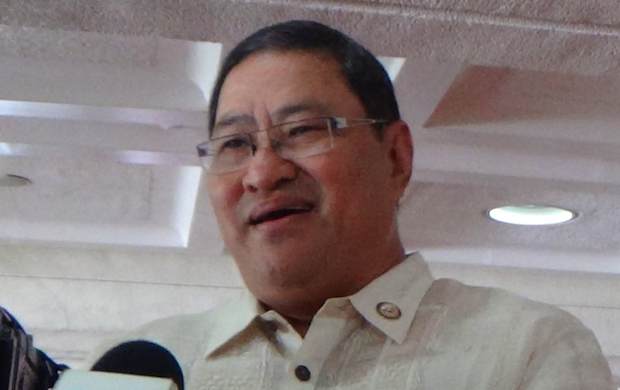Plunder excluded from death penalty
President Rodrigo Duterte’s allies in the House of Representatives on Friday sought to minimize plunder as just a “lame” crime involving money that did not warrant capital punishment.
This appeared to be the prevailing sentiment in the Duterte-controlled supermajority in the House, whose members wanted the list of offenses punishable by death trimmed down to a few heinous crimes.
“This is just a money matter, anyway, as they say, too lame for others to include it,” said Oriental Mindoro Rep. Reynaldo Umali, one of the chief proponents of the bill reintroducing capital punishment.
The proposed legislation identifies 21 major offenses to be punished with death through lethal injection, firing squad or hanging. The crimes include plunder, treason, qualified piracy, murder, rape, kidnapping and serious illegal detention, and dangerous drug offenses.
But during a caucus of the majority coalition members in the 293-seat chamber on Wednesday, an agreement was reached to exclude some crimes from the list, including plunder, Umali told dzMM radio.
Article continues after this advertisementHe said there was no ulterior motive among the lawmakers. Those convicted of plunder tended to be politicians.
Article continues after this advertisementHe said they were working to trim down the list to its “barest minimum” so more members would agree to its passage.
Speaker Pantaleon Alvarez earlier said the lawmakers wanted plunder out of the list, as the special law on plunder, Republic Act No. 7080, already included the death penalty in the punitive provisions.
That law originally penalized those convicted of plunder only with life imprisonment with perpetual absolute disqualification from holding any public office.
But the provision on penalty was amended in Republic Act No. 7659, or the death penalty law, in 1993, and which itself was repealed in 2006 when capital punishment was abolished.
Opposition
As the death penalty bill gained headway in Congress, leaders of the politically influential Catholic Church vowed to oppose the measure.
The proposed law is one of the pet bills of President Duterte, whose war on drugs had left over 7,000 suspected drug dealers and addicts dead before it was suspended last month.
But a combative Cebu Archbishop Jose Palma said the church was not concerned with its image.
“Our primary concern is to proclaim the truth and to help discern what is good for the people and the community,” Palma had said on Thursday in an interview after celebrating Mass to welcome the international centennial image of Our Lady of Fatima at the Cebu Metropolitan Cathedral.
“I’m sure it’s not just the President who will castigate the Church. There are other people who will speak ill about us. But in the end, we just can’t remain silent out of fear of being criticized. That is not the right way,” he said.
Mr. Duterte has been relentless in his criticism of the Church, saying the institution was “full of shit” and branding its leaders as corrupt womanizers for questioning his war on drugs.
The police, however, had been forced to suspend it after admitting that rogue cops had used the war on drugs as a cover for their illegal activities.
The Church hit back, saying the campaign brought a “reign of terror in many places of the poor.”
Palma clarified that bishops and priests fully supported the President’s campaign but not the killings.
He said they also agreed on his efforts to combat poverty, but questioned moves in Congress to lower the criminal liability age to 9 years old.
“To be honest, I feel sad that he would react in such a manner. I also feel for the people (who are hurt by his statements). I just hope that he, like anyone else, should be open to criticisms,” Palma, 66, said.
“If we feel that there is a point in those criticisms, we discern and say, OK, I need to adjust, reform, or carry out the suggestions. But if one thinks that everything he does is right, that is not the right way,” he added.
Palma stressed Church leaders had always kept communication lines with the President open, noting that when he assumed power, the bishops were largely silent because they recognized he was doing “good things.
The social action arm of the Jaro Archdiocese, meanwhile, called on legislators representing the provinces of Iloilo and Guimaras to vote against the death penalty bill. —WITH REPORTS FROM ADOR VINCENT S. MAYOL AND NESTOR P. BURGOS JR., INQUIRER VISAYAS
